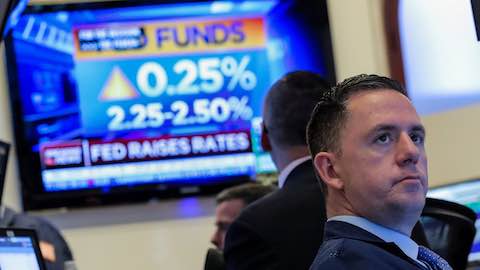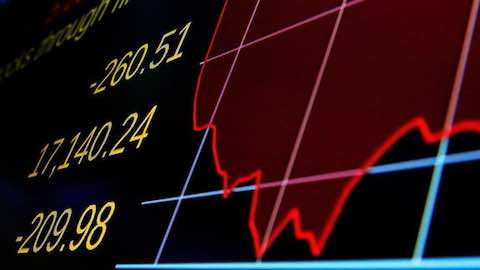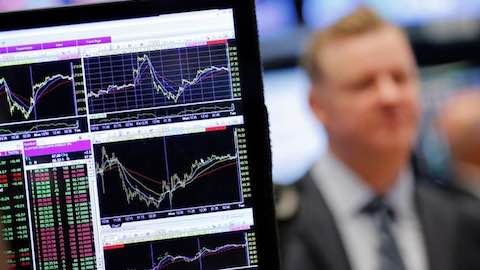- MENU
- HOME
- SEARCH
- WORLD
- MAIN
- AFRICA
- ASIA
- BALKANS
- EUROPE
- LATIN AMERICA
- MIDDLE EAST
- United Kingdom
- United States
- Argentina
- Australia
- Austria
- Benelux
- Brazil
- Canada
- China
- France
- Germany
- Greece
- Hungary
- India
- Indonesia
- Ireland
- Israel
- Italy
- Japan
- Korea
- Mexico
- New Zealand
- Pakistan
- Philippines
- Poland
- Russia
- South Africa
- Spain
- Taiwan
- Turkey
- USA
- BUSINESS
- WEALTH
- STOCKS
- TECH
- HEALTH
- LIFESTYLE
- ENTERTAINMENT
- SPORTS
- RSS
- iHaveNet.com: Investing
- Bitcoin, Blockchain & ICOs Explained
- Green Bonds Are Flourishing
- Green Mutual Funds Bounce Back
- World's Largest Sovereign Wealth Funds
- Bitcoin & Its Murkier Rivals
- Top-Earning Hedge Fund Managers
- Be Thankful for the Return of Volatility
- Best Mutual Funds for Retirement
- How You Can Invest in Agriculture
Agriculture | Airline | Auto | Beverage | Biotech | Book | Broadcast | Cable | Chemical | Clothing | Construction | Defense | Durable | Engineering | Electronics | Firearms | Food | Gaming | Healthcare | Hospitality | Leisure | Logistics | Metals | Mining | Movie | Music | Newspaper | Nondurable | Oil & Gas | Packaging | Pharmaceutic | Plastics | Real Estate | Retail | Shipping | Sports | Steelmaking | Textiles | Tobacco | Transportation | Travel | Utilities
3M (MMM) | AT&T (T) | AIG (AIG) | Alcoa (AA) | Altria (MO) | American Express (AXP) | Apple (AAPL) | Bank of America (BAC) | Boeing (BA) | Caterpillar (CAT) | Chevron (CVX) | Cisco (CSCO) | Citigroup (C) | Coca Cola (KO) | Dell (DELL) | DuPont (DD) | Eastman Kodak (EK) | ExxonMobil (XOM) | FedEx (FDX) | General Electric (GE) | General Motors (GM) | Google (GOOG) | Hewlett-Packard (HPQ) | Home Depot (HD) | Honeywell (HON) | IBM (IBM) | Intel (INTC) | Int'l Paper (IP) | JP Morgan Chase (JPM) | J & J (JNJ) | McDonalds (MCD) | Merck (MRK) | Microsoft (MSFT) | P & G (PG) | United Tech (UTX) | Wal-Mart (WMT) | Walt Disney (DIS)
-
There will be investigations and already there are lawsuits over Facebook's overhyped IPO, but no investigation is necessary into the reason for the outrage over the stock's rapid fall. It's called human nature
-
JPMorgan has had a reputation for managing its tentacles well -- until now. The bank's new snafu has reignited debate over what new rules are needed to limit risk at government-insured banks
-
As bonds struggle, investors hunt for income. But not all ETFs are created equal
-
They may not have always had the best reputation, but Master Limited Partnerships (MLPs) are worth a new look
-
Social media networks have created a new sphere for financial insiders to engage in stealth activities
-
Digging through the stock bargain bin can be rewarding, but also disappointing
-
Will the Facebook IPO add jobs, make investors phenomenally wealthy, and be the biggest offering in history? Don't bet on it
-
Investors who ignore social media use by publicly traded companies, even as a compliment to other communication methods, may miss an opportunity. But do a few skipped tweets really impact a portfolio?
-
Success for most individual investors stems from investing at an early age, setting aside new investment funds on a regular basis, and seeking low-cost and diversified investments
-
Financial planners often talk about an 'investor toolbox,' a collection of instruments and strategies that help generate income. Investors might consider adding a bond ladder to their tools
-
So-called 'junk' bonds may be the unpolished jewels of the fixed-income market, now that government bonds and higher-rated company-issued bonds are offering scant yield
-
Dollar cost averaging, which involves investing the same amount of money on a regular basis. Relentless investing of a set amount removes the faulty market-timing decisions that are so often the downfall of average folks
-
The world is not an easy place in which to invest these days. To make any headway, investors must exhibit the patient determination of an explorer such as Marco Polo
-
Turbulent financial markets haven't squelched generosity altogether in 2011, but they do have Americans thinking long and hard about the importance of their assets. They are reconsidering financial gifts to family members, recalculating value of their property, and reassessing financial components of their wills and estate plans
-
Treasuries suit investors that are purely seeking safety. But investors seeking a decent yield will need to look elsewhere
-
Historically, when investors get nervous, they buy gold to protect against further declines in the market, boosting the metal's price. But this time, a strange thing has happened: The stocks of the companies that pull gold out of the ground haven't yet taken off
-
With stocks bouncing around more than a San Francisco street car, many investors are looking for ways to ground their portfolios. Stability is not easy to find in this market, but financial experts recommend these six moves to anyone hoping to insulate their portfolios from major bump
-
The global cloud-computing market is expected to reach $241 billion in 2020, up from $41 billion in 2010, according to Forrester Research. That long-term potential is reflected in the high-flying stocks of companies actively involved in the concept
-
The question for Bank of America shareholders is how quickly it can put past mistakes in the rearview mirror, significantly improve its controls and use its enormous size to greater competitive advantage
-
Turn the clock back to late 2010, and all the talk in the investment community was about potential Armageddon in the municipal bond market. Midway through 2011, not a single rated municipality has defaulted on its debt. Here's what investors may expect moving forward
-
The volatile stock market provides opportunity for investors. Buying a stock at a discounted price only makes sense, however, if you've snared a bargain that actually pays off in the long run. That is easier said than done
-
To help find funds that have a history of strong performance in rough times, we compiled a list of funds, spread among a range of asset classes, with impressive 10-year track records
-
Year-to-date performance so far in 2011 is lagging the broader bond fund category, but some financial advisers still see an effective short-term investment opportunity lurking within carefully selected bond funds, especially compared with other short-term options
-
Although emerging markets have taken a dive lately, the long-term outlook for these fast-growing countries remains favorable for investors, especially as growth in much of the developed world stalls. Investors should consider folding high-growth global exposure into a balanced portfolio
-
Because of the volatility and instability often associated with less-mature foreign financial markets as well as potentially undependable and non-standardized financial reporting, investing in stocks through foreign exchanges turns off many U.S. investors. Another option is investing in U.S. companies that rely on exports -- to Asia, Latin America, and elsewhere -- to boost their bottom lines
-
In today's low-yield environment, the U.S. government will pay you just 1.9 percent a year over the next 10 years if you invest in a 10-year treasury bond. That's an all-time low that has many investors scratching their heads
-
So far in 2011, Fairholme has lost about 22 percent, landing it near the bottom of its category and sending investors fleeing from the fund. Here are four lessons investors can take away from the Fairholme Fund's recent struggles
-
If you're primarily a saver -- in or nearing retirement, for example -- you'll continue to see paltry yields on investments like money market funds or certificates of deposit. So what's a saver to do?
-
Uncertainty underscores the need for a diversified personal portfolio that is long-term in nature with a logical time horizon. Cautious investors had already begun carefully pulling back their overall stock holdings before recent turmoil
-
When deciding how to allocate your stock portfolio to different regions of the world, there are many factors investors should consider. A stock market's valuation, the country's expected economic growth, and the actions of its central bank all play a role. Here are five factors that drive stock prices
-
Concerns about higher inflation and fears of a downturn have helped boost gold's price, but the biggest contributor has been historically low real interest rates. Here's why the price of gold has the potential to move even higher
-
According to some analysts, gold may hold the bulk of this run into 2012; at least three major investment banks hiked their price forecasts, though some do expect gold to pull back from what they see as current highly speculative levels. Here's a look at some of the leading gold ETFs
-
The stock market's recent volatility has put new focus on a key question older investors have been asking themselves since the 2008 crash: What is the correct retirement portfolio equity exposure for investors close to retirement
-
The bright side of the topsy-turvy situation, if there is one, is that it has added to the luster of smooth-performing investments. While such careful choices won't be leaders in hot markets, they provide a desirable safety net in downturns
-
The traditional portfolio has long been anchored by mutual funds, but a growing number of investors are embracing a nimbler, cheaper alternative. Exchange-traded funds (ETFs), which debuted in the early 1990s, have attracted a substantial amount of assets in recent years, recently surpassing the $1 trillion mark. Here's why
-
Target date funds came under heavy fire for failing to protect older retirement investors after the 2008 market crash. But target date funds (TDFs) have performed better during the market's recent volatility -- thanks to lessons learned last time around
-
Taking advantage of greatly reduced stock prices is a tricky business. One strategy is to find an investment area so certain to grow that it will be around long after market traumas subside. Green investing, which offers the added potential of innovative companies getting snapped up by bigger firms, could be one of those areas
-
For investors, volatility can be scary. And stocks are always going to be much more volatile than more conservative investments like bonds. But when deciding whether a portfolio with only a small allocation to stocks or none at all is right for you, it's important to examine other risks that may not be as obvious
-
With more than 1,000 ETFs traded in the United States covering just about every nook and cranny of the market, it can be a monumental task to sift through them all and determine which funds best fit your goals. Here are three sites to help you navigate the ETF world and find the right funds for you
-
Junk bonds remain a viable market for yield-seekers, but only for a small portion of an individual's portfolio. Anyone who believes the economy will worsen shouldn't consider them at all because debt of companies with subpar credit is not for the faint of heart
-
Many investors have opted to look beyond the 'zone' for exposure to developed Europe. The short list includes heavy-hitters the United Kingdom and Switzerland and extends to Scandinavian nations
-
It may seem surprising that some forms of real estate have been among the most reliable of investments
-
Closed-end funds (CEFs) may be one of the most misunderstood investments
-
Large-cap growth funds have held up better than most other types of stock funds in 2011
-
Betting on commodities by buying futures contracts directly can be very risky. So having a core position in a fund that invests broadly in commodity-related businesses with some side positions tied specifically to agriculture and energy is probably the smartest move for the retail investor
-
Companies that find themselves flush with cash have been buying back their shares in 2011. If they're so convinced that they're getting a bargain, perhaps investors should take a closer look as well
-
Do amateur investors like you have any advantages over professionals? Perhaps ...
-
If exchange-traded funds sound like exotic investments to you, here's what you need to know
-
Market gyrations usher in a growing crop of low-volatility indexes and ETFs
-
Some economists argue that these big swings are the 'new normal.' Therefore, investing in just a handful of instruments is risky. The best strategy for investing is diversification. And if you're looking to diversify, mutual funds might be your best bet
-
Politics dominate now, but long-term draws include middle-class and infrastructure growth
-
The Dow Jones Industrial Average hit 13,000 recently, marking a major post-recession milestone for the stock market index. Still, it seems like an arbitrary milestone
-
Stock indices ended 2011 just as they started the year: Markets, across the board, were flat. But there's a bright side to this underperformance
-
The brand that has achieved almost religious status for some diehard fans continues to expand its reach by impressive leaps
-
Exchange-traded funds that track China had been high-flyers over the past few years. This year has been a different story, featuring a double-digit percentage drop that has now run into a mild late-year bounce
-
These funds give portfolio managers considerable leeway in choosing among different asset classes
-
With bond yields so low, dividend-paying stocks can be a good alternative for income-seeking investors
-
Global large caps offer a fairly conservative approach to investing in booming emerging markets
-
Not all stocks perform poorly during a tough year for the market. Some that you might consider yawners in more robust times actually hang in there and prosper
-
Europe might seem too treacherous for investors just now. The region's broader stock market is down more than 20 percent so far this year. But some asset allocation advisers and fund managers believe there is a place for European exposure in a diverse portfolio that can tolerate at least some level of risk
-
Health care investing is making a comeback in 2011. The industry has shaken off irrational fears about reform and refocused on the opportunities that an aging population provides. Compared to industries more closely tied to the economy, it isn't scary at all anymore
-
Should you go with individual bonds or give the nod to bond funds? It depends. Here's why
-
Managers and analysts are optimistic yet skeptical that last year's double-digit gains can be repeated
-
Europe and the United States will have a lot of pull on China's 2012 economic and stock-market fate. There's little Chinese officials can do about that. But domestically, officials appear to have orchestrated a soft landing
-
Dividend plays are likely to remain attractive in 2012, but steeper valuations, in utilities and tobacco for instance, may encourage investors to stretch their search to select consumer stocks
-
Luxury retailers will likely continue to please their stockholders this holiday season, just as they have throughout much of the economic downturn. It is one way that an average investor can benefit from spending patterns of the well-to-do
-
Analysts say cloud computing will revolutionize the way we use technology
-
Who are leveraged exchange-traded funds meant for? The answer depends on your level of sophistication and investing time horizon
-
Many people contribute to employer-sponsored retirement plans and IRAs, but there is another tax-advantaged retirement vehicle that shouldn't be overlooked: annuities
-
Seventy billion shares of ETFs were traded last month, up 86 percent from July
-
While the U.S. economy is saddled with sluggish growth, a near double-digit unemployment rate, and a housing market plagued by foreclosures and falling prices, the stock market has been booming since hitting bottom in March 2009
-
Taking on a bit more risk can make a portfolio safer because it allows investors to capitalize on the benefits of diversification and capture more yield. That extra yield can provide more cushion to help a portfolio withstand market swings. Here's a look at a few asset classes that still provide ballast for portfolios, but allow investors to reap better yields
-
With thousands of options to choose from, selecting the right mutual fund can be tough. While past performance is no guarantee of future success, one of the most proven strategies is selecting funds with solid long-term track records. Managers of these funds tend to invest for the long haul instead of making shortsighted bets or chasing the latest market trend. Here's our top 50
-
The results of the world's largest home-improvement specialty retailer are tied to consumers' willingness to buy for their homes and to the operating efficiency of the company. The question for stock investors is whether both factors will be strong enough to provide robust returns going forward
-
What options are available for investors who cannot survive on the puny returns from conservative investments but who also do not want to take significant market risks, remembering what happened to their portfolios in 2008?
-
Some unusual funds are whacky and some adhere to overly focused strategies. However, others work fine for investors seeking to add spice to predictable portfolios that had been formulated by the book. And ideas for funds keep coming, even if they don't all get off the ground
-
While basketball players may aspire to 'be like Mike,' as in NBA great Michael Jordan, investors have a variety of role models to choose from. Finding one that suits their personality is not easy, so it makes sense to study as many as possible. The best-known names excel in common sense and patience
-
With several countries in Europe on the verge of default the continent may seem like a bad bet for investors, at first glance. But outside Portugal, Ireland, Italy, Greece, and Spain, countries often referred to as the PIIGS, there may be some bright spots for investors
-
Although the S&P is still up by about 5 percent so far this year, the index has dropped 3 percent so far during May. Market watchers point to a number of reasons why stocks could head lower, including the end of the Federal Reserve's highly controversial second round of quantitative easing, known as 'QE2.' Here are five signs that don't bode well for stocks
-
Shareholders of more than 20 other companies nationwide have rejected their top managers' pay packages, and more such rebuffs are expected in the months ahead. For now, however, executive pay once again is zooming skyward after pausing for a couple of years for the recession




